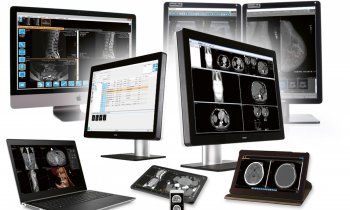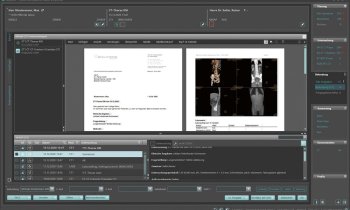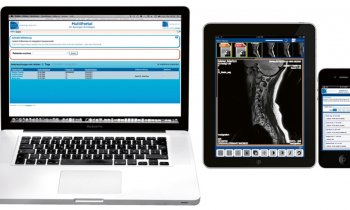News • Cryptography
How can blockchain accelerate innovation in healthcare?
Blockchain technology can be a potential industry disrupter in healthcare. It is a proven game changer in the business arena.
So, what is blockchain technology? In a nutshell, the concept is based on a list of records, called blocks, which are linked and secured through a process of constructing and analyzing protocols to prevent third parties or the public from reading private messages (also known as cryptography). Each block has a timestamp and transaction data, and Harvard Business Review defines blockchain as “an open, distributed ledger that can record transactions between two parties efficiently and in a verifiable and permanent way.” Once recorded, the beauty of blockchain technology is that the data is inalterable without the modification of all subsequent blocks, which requires the majority of the network to work together.
How are blockchains relevant to healthcare?

This decentralization and encryption in distributing, sharing and storing information is relevant to protecting patients’ health data. As physicians and providers, we may finally be liberated from retrieving data in a siloed manner, and we can finally access secure data in an econometric, integrated way to optimize quality of care for our patients. Managing and securing healthcare data is just one example of how blockchain adoption will be an industry disrupter. Better data sharing between healthcare providers will mean a higher probability of accurate diagnoses, more effective treatments, and the overall increased ability of healthcare organizations to deliver cost-effective care.
Blockchain technology can allow various stakeholders in the healthcare value-chain to share access to their networks without compromising data security and integrity, allowing them to track data sources as well as any changes made throughout the process. Blockchain has the potential to accelerate innovation in risk-based, coordinated care models, like alternative payment models, offering the capacity of a distributed ledger technology for ensuring data integrity while preserving security for patients and facilitating efficient collaboration between local, regional, and global communities in healthcare.

A “source of truth” for health data
This innovation can integrate complex, chronic, and team-based care along with payment and delivery model reforms. For example, blockchain technology can be the “source of truth” for medication prescriptions. Today, different entities prescribe and fill a patient’s medications (e.g. opioids), including emergency departments, physician offices and pharmacies. Each entity has its own source of truth. As a result, physicians and providers are frequently oblivious to each other’s prescriptions, because they are unable to view them with different EHRs. With blockchain being the source of truth, hospitals, physicians, and pharmacies would see all events surrounding the patient’s medications, ensuring accuracy, fidelity, and quality assurance, thus improving the overall patient experience and quality of care.
Source: HIMSS/Dr. Amy Nguyen Howell
06.01.2018











